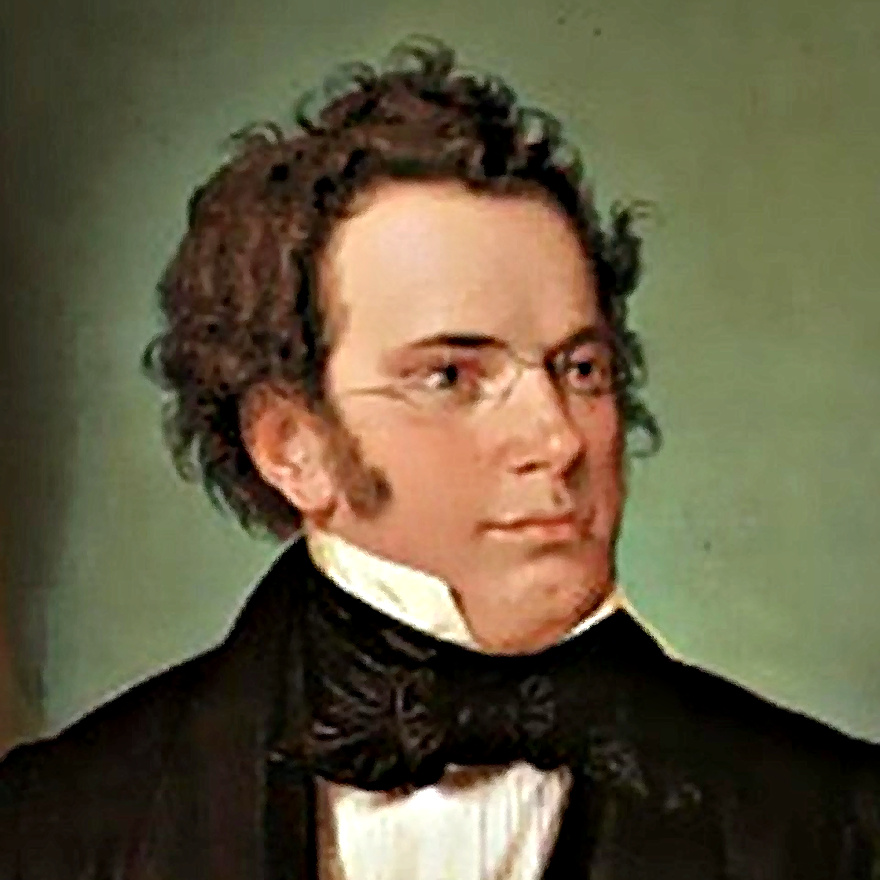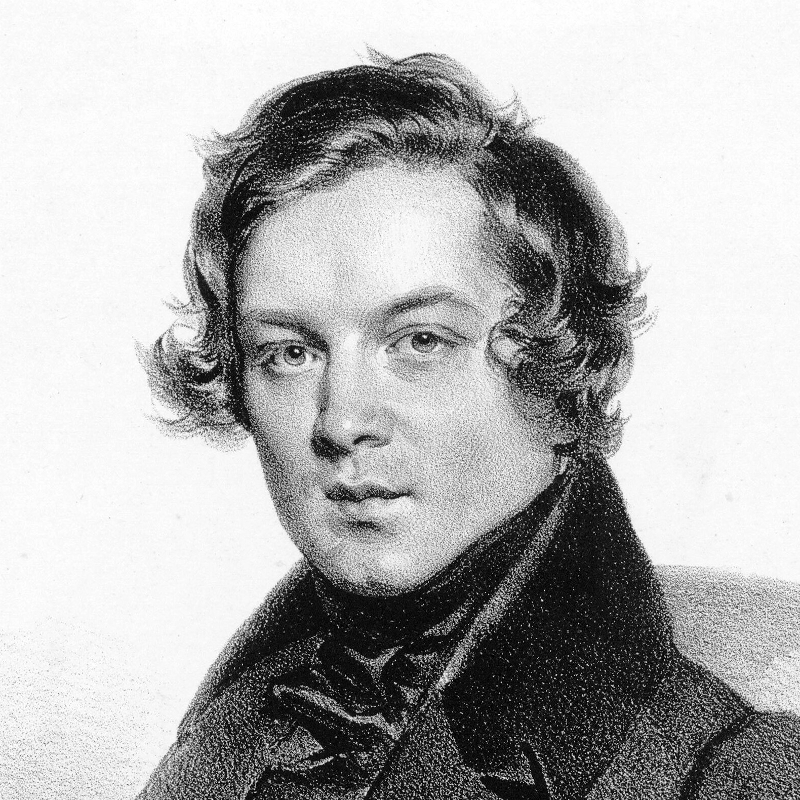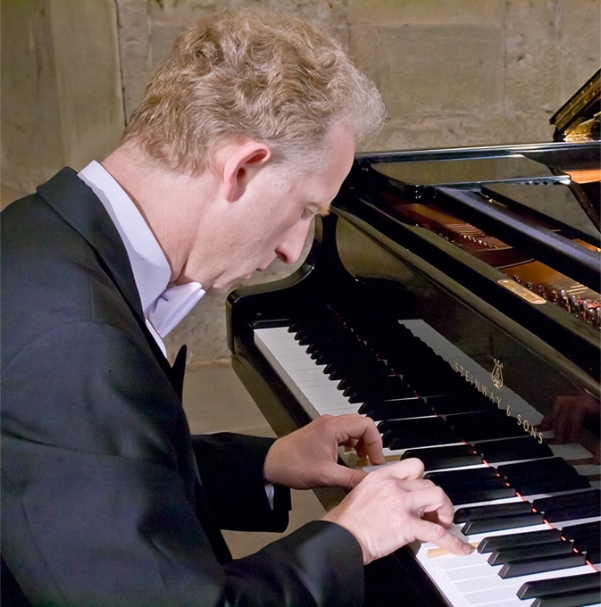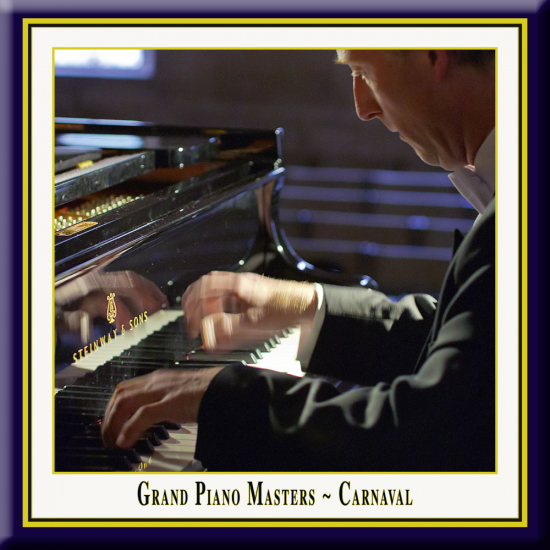Grand Piano Masters · Carnaval
Carnaval
Rolf Plagge plays
Wolfgang Amadeus Mozart (1756-1791):
Piano Sonata No. 12 in F Major, K. 332
Franz Schubert (1797-1828):
Piano Sonata No. 16 in A minor, Opus 42, D. 845
Robert Schumann (1810-1856):
Carnaval for Piano, Op. 9
"Little Scenes on Four Notes"
A live recording from the German
UNESCO World Heritage Site Maulbronn Monastery
HD Recording · DDD · c. 79 Minutes



T
he Piano Sonata No. 12 in F major by Wolfgang Amadeus Mozart, K. 332/300k, was written at the same time as the Piano Sonata, K. 330, and Piano Sonata, K. 331 ("Alla turca"), Mozart numbering them as a set from one to three. They were once believed to have been written in the late 1770s in Paris, but it is now thought more likely that they date from 1783, by which time Mozart had moved to Vienna. Some believe that Mozart wrote this and the other sonatas during a summer 1783 visit to Salzburg made for the purpose of introducing his wife, Constanze to his father, Leopold. All three sonatas were published in Vienna in 1784... [From Wikipedia, the free encyclopedia]

The Piano Sonata No. 16 in A minor D. 845 (Op. 42) by Franz Schubert is a sonata for solo piano, composed in May 1825. The first movement was featured in the 2016 film "The Age of Shadows". The first movement is in sonata form though with ambiguity over the material in the development and the beginning of the recapitulation. The second movement is in C major (relative key to A minor) variation form, with somewhat frequent forays into the parallel minor, C minor. The third movement is a scherzo in compound ternary form, where the main scherzo is essentially in sonata form. The main scherzo opens in A minor and soon switches to the second theme in C major without a transition. The development goes through F minor, A-flat major and A-flat minor, finally arriving on an imperfect cadence in A minor. After the development comes the opening theme in A minor, soon followed by the second theme in A major (also in which the main scherzo ends). The calmer and slower trio section is in F major, the submediant major to A minor (also the subdominant of the relative key to A minor). No extra coda is present after the recapitulated main scherzo. The fourth movement, in A minor, begins with a melancholic but light melody. This movement is in sonata rondo form with foreshortened recapitulation. The secondary subject in the exposition goes from E minor to E major, while that in the recapitulation goes from A minor to A major. This movement finally closes in A minor... [From Wikipedia, the free encyclopedia]

Carnaval, Op. 9, is a work by Robert Schumann for piano solo, written in 1834-1835, and subtitled "Scènes mignonnes sur quatre notes" (Little Scenes on Four Notes). It consists of 21 short pieces representing masked revelers at Carnival, a festival before Lent. Schumann gives musical expression to himself, his friends and colleagues, and characters from improvised Italian comedy (commedia dell'arte). He dedicated the work to the violinist Karol Lipinski. Carnaval had its origin in a set of variations on a "Sehnsuchtswalzer" by Franz Schubert, whose music Schumann had only discovered in 1827. The catalyst for writing the variations may have been a work for piano and orchestra by Schumann's close friend Ludwig Schuncke, a set of variations on the same Schubert theme. Schumann felt that Schuncke's heroic treatment was an inappropriate reflection of the tender nature of the Schubert piece, so he set out to approach his variations in a more intimate way, and worked on them in 1833 and 1834. The work was never completed, however, and Schuncke died in December 1834, but Schumann did re-use the opening 24 measures for the opening of Carnaval. Pianist Andreas Boyde has since reconstructed the original set of variations from Schumann's manuscript (published by Hofmeister Musikverlag), premiered this reconstruction in New York and recorded it for Athene Records... [From Wikipedia, the free encyclopedia]

I
n July 1990 Rolf Plagge became the first German pianist ever to win a prize in the prestigious Moscow Tchaikovsky Competition. He had already been awarded numerous prizes in national and international competitions in Vienna, Bratislava, Montevideo, Bonn, and several times in Italy. In 1987 he won the 3rd prize in the esteemed 'Reine Elisabeth' Competition in Brussels and has since been a frequent performer in Belgium. Rolf Plagge is regularly performing in many European countries, including Russia, as well as in the US and Latin America, Japan, South Korea, South East Asia, Australia. Apart from giving solo performances with various German orchestras (State Symphony Orchestra of Thuringia, Bochum Symphonic Orchestra, Bremen Philharmonic, Munich Chamber Orchestra, Rheinische Philharmonie, Staatsphilharmonie Rheinland-Pfalz etc.) as well as with international orchestras, including Baltic Philharmonic, Filharmonia Narodowa Warschau, Orchestre National de France; Polish Chamber Philharmonic, Salt Lake City Symphony Orchestra, Israel Sinfonietta, Orchstre National de Belgique etc.
Plagge was born in 1959 in Westerstede, North Germany, where he received his first piano lessons at home. By 1969 he was studying at the Bremen Conservatory with Prof. Peter-Jürgen Hofer. After winning several prizes and scholarships he continued his studies with various famous teachers: in Freiburg with Vitaly Margulis, in Vienna with Paul Badura-Skoda, at the Juilliard School in New York with Gyorgy Sandor and finally in Hannover with Karlheinz Kämmerling. Since 1991 he is holding a teaching position as professor at the University of Music "Mozarteum" in Salzburg, also giving piano masterclasses in Europe and many other countries, including US, South America, Japan, Korea, Australia.
P
ublishing Authentic Classical Concerts entails for us capturing and recording outstanding performances and concerts for posterity. The performers, audience, opus and room enter into an intimate dialogue that in its form and expression, its atmosphere, is unique and unrepeatable. It is our aim, the philosophy of our house, to enable the listener to acutely experience every facet of this symbiosis, the intensity of the performance, so we record the concerts in direct 2-Track Stereo digital HD. The results are unparalleled interpretations of musical and literary works, simply - audiophile snapshots of permanent value. Flourishing culture, enthralling the audience and last but not least also you the listener, are the values we endeavor to document in our editions and series.
The concerts at the UNESCO World Heritage Maulbronn Monastery supply the ideal conditions for our aspirations. It is, above all, the atmosphere of the romantic, candle-lit arches, the magic of the monastery in its unadulterated sublime presence and tranquillity that impresses itself upon the performers and audience of these concerts. Renowned soloists and ensembles from the international arena repeatedly welcome the opportunity to appear here - enjoying the unparalleled acoustic and architectural beauty of this World Heritage Site, providing exquisite performances of secular and sacred music, documented by us in our Maulbronn Monastery Edition.
The concert grand piano is incontestably the king of instruments. We could now wax lyrical about its incomparable dynamics and go into its ability to go from the tenderest of sounds in a soft minor key to the magnificent power of a fortissimo, or I could rhapsodise about its impressive size and elegance. But what makes this instrument really fascinating is its individuality, since each one is unique in itself - created by a master. A concert grand has a life all of its own that a virtuoso can really "get into" and hence bring the work of the composer to life. In our Grand Piano Masters Series, we get into the character and soul of the concert grand piano and experience, during the performance itself, the dialogue between the instrument, the virtuoso and the performance space.
Andreas Otto Grimminger & Josef-Stefan Kindler, K&K Verlagsanstalt
Wolfgang Amadeus Mozart (1756-1791):
Piano Sonata No. 12 in F Major, K. 332
1. I. Allegro
2. II. Adagio
3. III. Allegro assai
Franz Schubert (1797-1828):
Piano Sonata No. 16 in A Minor, Op. 42, D. 845
4. I. Moderato
5. II. Andante, poco mosso
6. III. Scherzo ~ Allegro vivace
7. IV. Rondo ~ Allegro vivace
Concert Grand Piano: Steinway & Sons, C-227
Sound & Recording Engineer: Andreas Otto Grimminger
Production & Mastering: Andreas Otto Grimminger & Josef-Stefan Kindler
Photography, Artwork & Design: Josef-Stefan Kindler
Robert Schumann (1810-1856):
Carnaval for Piano, Op. 9 "Little Scenes on Four Notes"
8. I. Preambule ~ Quasi maestoso
9. II. Pierrot ~ Moderato
10. III. Arlequin ~ Vivo
11. IV. Valse noble ~ Un poco maestoso
12. V. Eusebius ~ Adagio - Piu lento molto teneramente
13. VI. Florestan ~ Passionato
14. VII. Coquette ~ Vivo
15. VIII. Replique ~ L'istesso tempo
16. IX. Papillons ~ Prestissimo
17. X. A.S.C.H. - S.C.H.A. ~ Lettres Dansantes Presto
18. XI. Chiarina ~ Passionato
19. XII. Chopin ~ Agitato
20. XIII. Estrella ~ Con affetto - Piu presto molto espressivo
21. XIV. Reconnaissance ~ Animato
22. XV. Pantalon et Colombine ~ Presto
23. XVI. Valse allemande ~ Molto vivace - Paganini ~ Intermezzo
24. XVII. Aveu ~ Passionato
25. XVIII. Promenade ~ Con moto
26. XIX. Pause ~ Vivo precipitandosi
27. XX. Marche des "Davidsbuendler" contre les Philistins ~ Non Allegro

Another great piano recital from K&K...This CD is a special one!
His easy virtuosity leaves him free to voice the chords at every moment, and there are many moments of sheer magic in all the chosen works. I would mention, for example, his compelling interpretation of one of the most elusive and problematic of Schubert's sonatas, the first movement thoughtfully dramatic, and the slow movement exquisite... This CD is a special one!






Another great piano recital from K&K...This CD is a special one!
16. December 2012 - 17:15 — kuk-art.comDr. Peter Grahame Woolf, Musical Pointers UK